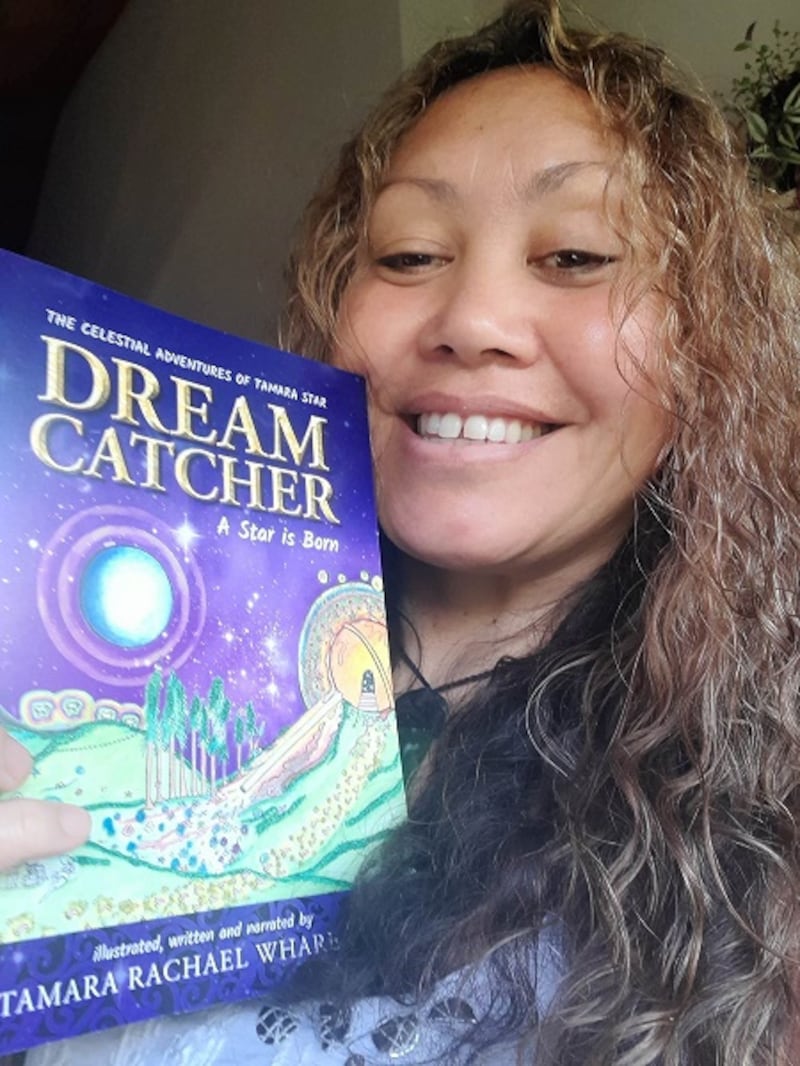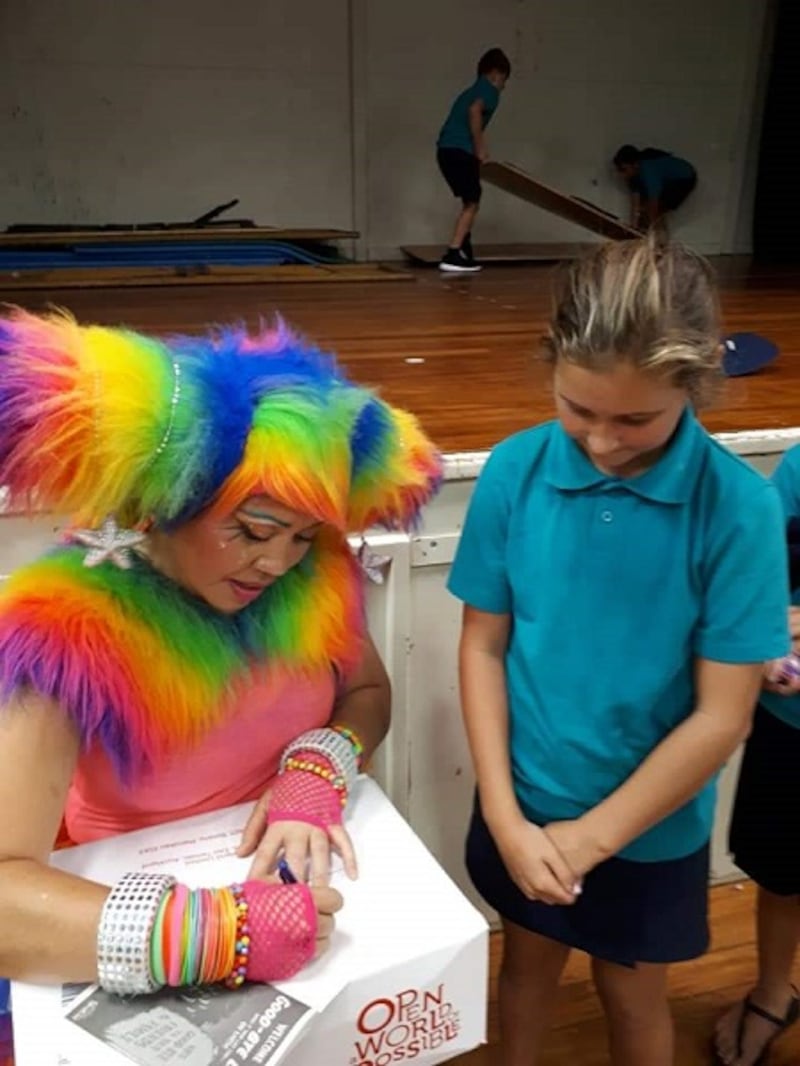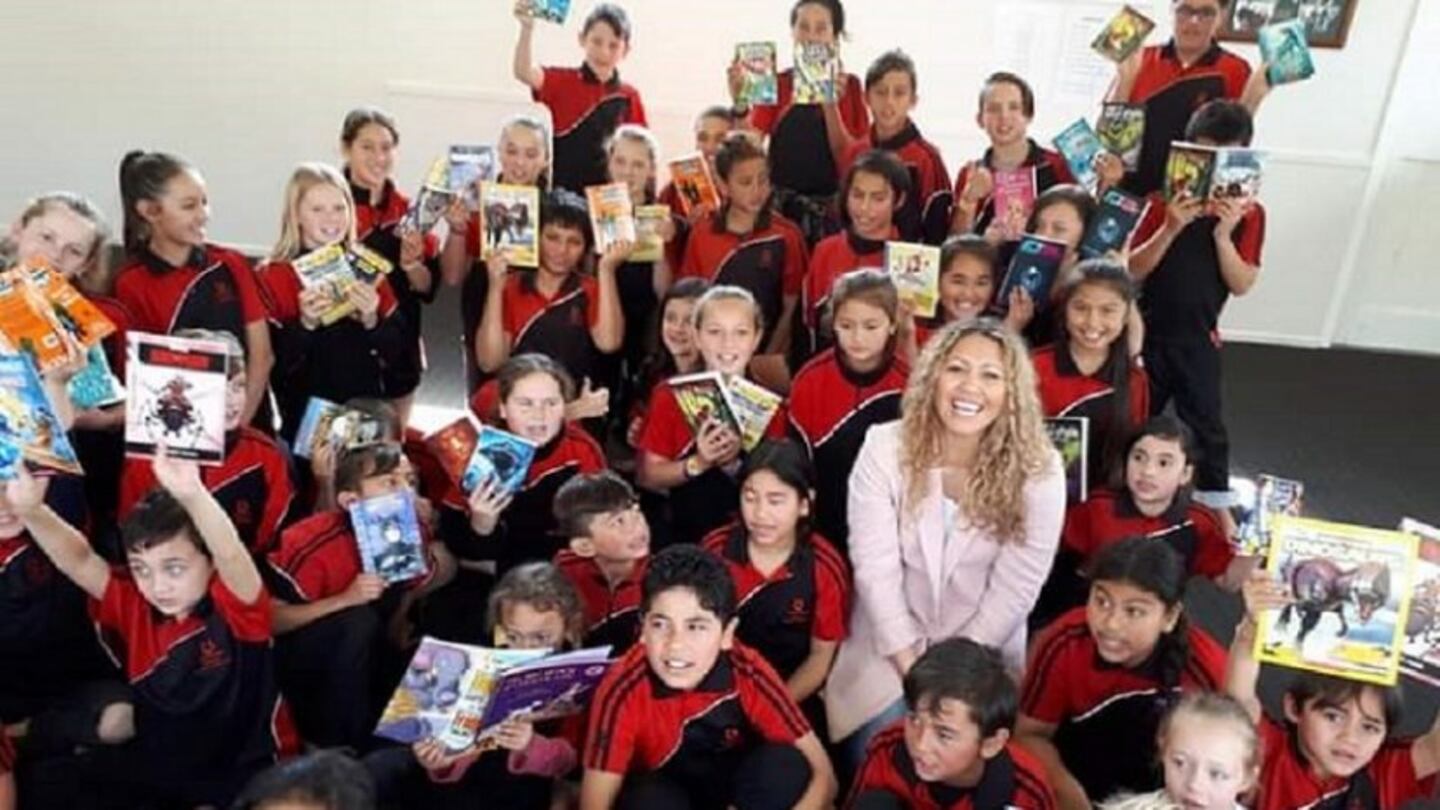Duffy Books Role Model, community worker and now author, Tamara Wharerau, has today launched her fantasy novel and audiobook at an event in the Ranui Library in west Auckland.
The book, which is the product of 20 years of experiences with drug use, mental health issues, and work with communities in the drug and alcohol harm prevention space, is a labour of love for Wharerau.
“The book is te ao Māori based. I think that's special. The book itself has rongoā, waiata, karakia, our atua and tūpuna - a very celestial te ao Māori styled book. It's got my own twist of fantasy and cool characters.”

The inception of Dream Catcher: A Star is Born, was one of turmoil for Wharerau. The idea came to her during a period in which she was battling drug addiction and suicidal thoughts.
“I was diagnosed with drug-induced psychosis after trying to commit suicide. I was literally living in a nightmare for every second, every minute of the day. I ended up asking my tūpuna for guidance and help, to help me get through this. They sent me this story. It was my saving grace.”
The launch and tour of the novel is dedicated to Wharerau’s little brother, Daniel, who was lost to suicide.
Wharerau has 30 libraries lined up to visit in her tour, in which she plans to share her own story of meth use, and to give rangatahi the tools to navigate drug use and depression.
“I want them to know about the dangers of meth and of other drugs and alcohol - especially when you're depressed and facing trauma. Going and getting some counselling, keeping yourself healthy, eating healthy food, and when you're feeling depressed don't be alone and try to get the help that you need.”
Wharerau has worked with people recovering from harm caused by meth use, and mentors women who have had similar experiences to her.

“Fifteen years into my journey I was ready to go out and start helping whānau in the community. I've seen a lot of stuff and the rest of the country just don't know this is happening.”
Wharerau intends on turning her story into a documentary in the hopes of inspiring change in those profiting from meth being sold in communities.
“Facing the gang leaders isn't about pointing fingers or blaming anybody, it's more about empowering and inspiring them. I really want to use my journey and my success as a way of saying, ‘Hey we can do it without drugs, we don't need to rely on that to get us by’. That's a thing of the past now. It's not sustainable for us because we're not far from wiping out our own people.”



